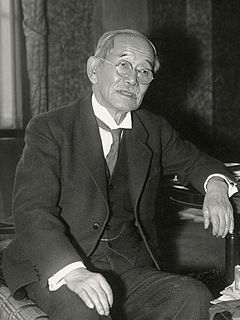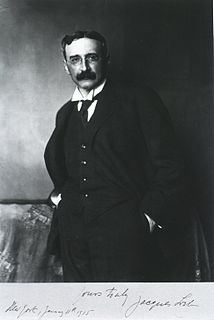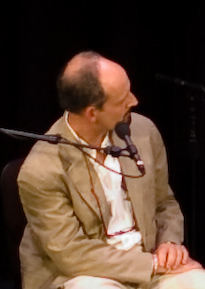A Quote by Rachel Carson
The discipline of the writer is to learn to be still and listen to what his subject has to tell him.
Related Quotes
In an argument, you may silence your opponent by pressing an advantage of strength or of wealth, or of education. But you do not really convince him. Though he is no longer saying anything, in his heart he still keeps to his opinion, the only way to make him change that opinion is to speak quietly and reasonably. When he understands that you are not trying to defeat him, but only to find the truth, he will listen to you and perhaps accept what you tell him.
I think my deepest criticism of the educational system . . . is that it's all based upon a distrust of the student. Don't trust him to follow his own leads; guide him; tell him what to do; tell him what he should think; tell him what he should learn. Consequently at the very age when he should be developing adult characteristics of choice and decision making, when he should be trusted on some of those things, trusted to make mistakes and to learn from those mistakes, he is, instead, regimented and shoved into a curriculum, whether it fits him or not.
I know Jim Cornette says the reason that I'm successful now is because I changed my attitude, and I must be listening to what people tell me now, and I used to not listen to him. But the thing is, I used to not listen to him or question his methods because I didn't agree with him, and I didn't share his vision.
The writer is a definite human phenomenon. He is almost a type - as pugilists are a type. He may be a bad writer - an insipid one or a clumsy one - but there is a bug in him that keeps spinning yarns; and that bulges his brow a bit, narrows his jaws, weakens his eyes and gives him girl children instead of boys. Nobody but a writer can write. People who hang around writers for years - as producers did - who are much smarter and have much better taste, never learn to write.
People do tell a writer things that they don't tell others. I don't know why, unless it is that having read one or two of his books they feel on peculiarly intimate terms with him; or it may be that they dramatize themselves and, seeing themselves as it were as characters in a novel, are ready to be as open with him as they imagine the characters of his invention are.
If you saw Atlas, the giant who holds the world on his shoulders, if you saw that he stood, blood running down his chest, his knees buckling, his arms trembling but still trying to hold the world aloft with the last of his strength, and the greater his effort the heavier the world bore down upon his shoulders - What would you tell him?" I…don't know. What…could he do? What would you tell him?" To shrug.
Kids who are least impressive in my class are the ones who only listen to one kind of music. They only listen to country or only to rap or to gospel or anything. It's a sad thing. I try really hard to get them to go out and listen to things. It's amazing what you learn. ... I'm still trying to learn. It's not like I'm going to be a calypso singer. That's not going to happen, but I'm sure there's something in that, that I can learn from and apply to my own work.
It is easier for the reader to judge, by a thousand times, than for the writer to invent. The writer must summon his Idea out of nowhere, and his characters out of nothing, and catch words as they fly, and nail them to the page. The reader has something to go by and somewhere to start from, given to him freely and with great generosity by the writer. And still the reader feels free to find fault.
When Jesus invites sinners, 'Come to me, all who labor and are heavy laden, and I will give you rest,' he immediately adds,'take my yoke upon you, and learn from me' (Matt. 11:28-29). To come to him includes taking his yoke upon us, being subject to his direction and guidance, learning from him and being obedient to him. If we are unwilling to make such a commitment, then we have not truly placed our trust in him.





































